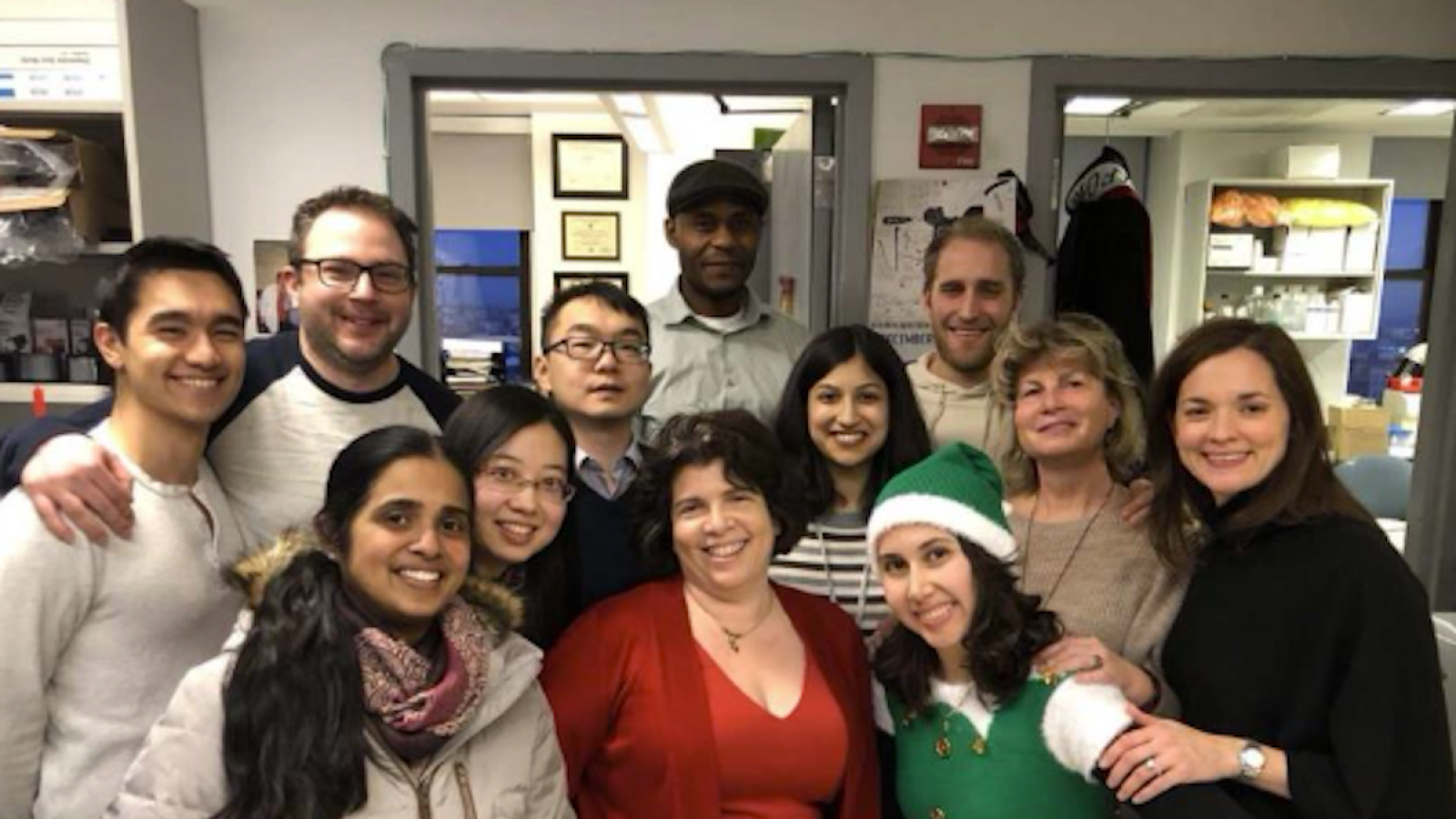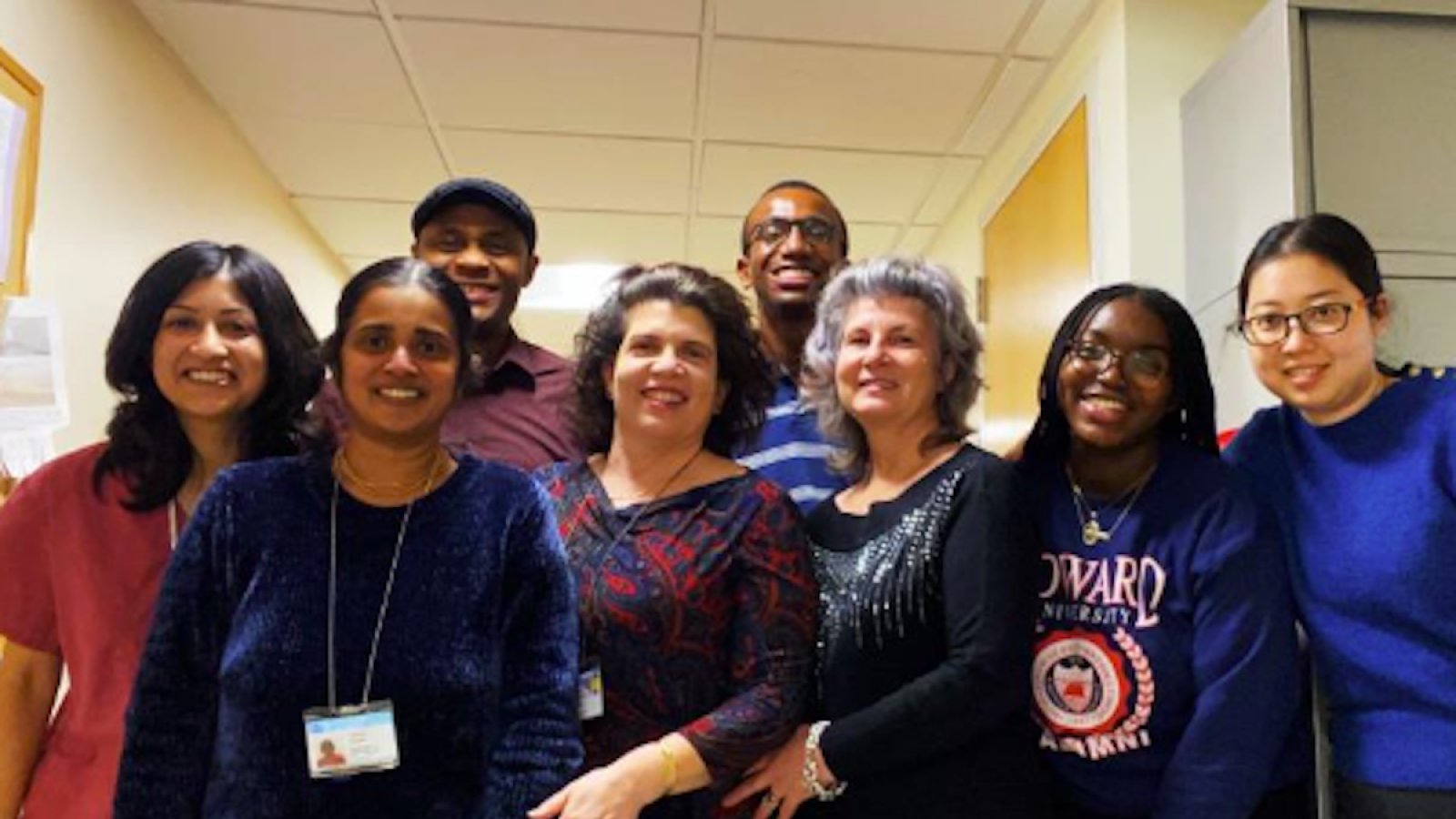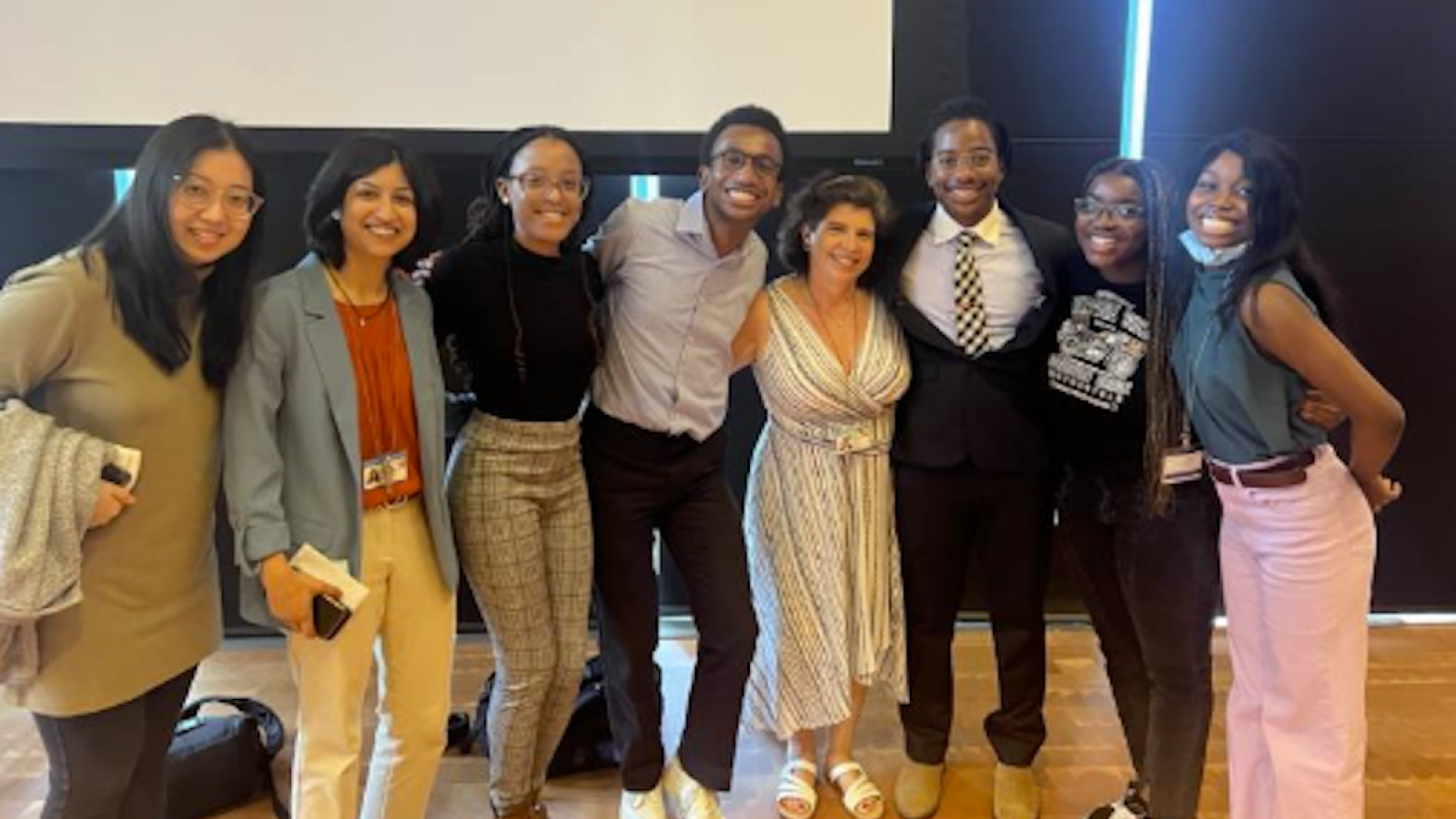D’Armiento Lab
Principal Investigator
The goal of the D’Armiento Lab is to develop insight into lung physiology and pathology by understanding the mechanisms altering lung injury and repair, and translating these findings into practical clinical solutions. Our studies focus on the role of matrix metalloproteinase (MMP) in normal physiology and in human disease integration in both in vitro and in vivo approaches. The laboratory also is uniquely situated to characterize the molecular changes in the study of smoke-induced injury and disease so as to identify potential therapeutic targets for smoke-induced disease processes. Dr. D'Armiento also is principal investigator of the LAMLab - The Center for LAM and Rare Lung Diseases at Columbia University.
Lab Members
Jeanine D'Armiento, MD/PhD
- Principal Investigator, Director of the Center for LAM and Rare Lung Disease, Professor of Medicine in Anesthesiology
Dr. D’Armiento is a Professor of Medicine in Anesthesiology at Columbia University. She is the Director of the Center for Molecular Pulmonary Disease in Anesthesiology and Physiology and Cellular Biophysics, and Director of the Center for Lymphangioleiomyomatosis (LAM) and Rare Lung Disease. Her clinical center serves as a tertiary referral center for the Northeast region, and cares for patients with LAM and Alpha-1. Dr. D’Armiento’s research focuses on understanding the mechanisms of lung injury and repair. The foremost goal of her research program is to develop insight into lung physiology and pathology through understanding the fundamental mechanisms modulating lung injury and repair and translating these findings into practical clinical solutions. Dr. D’Armiento has been involved with the mentoring and training of young faculty. She has trained over 15 clinical science and basic science fellows, most of whom now hold academic and industry positions. In 2008, she completed a two-year appointment as the Associate Dean for Gender Equity and Faculty Development at Columbia University where she concentrated on professional development programs specific for women faculty. She currently serves on the Executive committee of the Columbia University senate and Chairs the Commission on the Status of Women at the University. She has served on the executive board of the Alpha-1 Foundation and previously served as chair of the board of directors of the Foundation. She is also presently serving as a consultant to the Director of the Office of Rare Disease, NCATs, National Institute of Health.

Monica Goldklang, MD
- Co-Clinical Director for Center for LAM and Rare Lung Diseases, Assistant Professor of Medicine (in Anesthesiology)
Dr. Monica Goldklang is a pulmonary and critical care physician-scientist at Columbia University. She grew up in Michigan, completing undergraduate, medical school, and residency training at the University of Michigan. She moved to Columbia University for a pulmonary and critical care fellowship and post-doctoral research training in the laboratory of Dr. Jeanine D’Armiento. In addition to caring for patients with rarelung diseases including alpha-1 antitrypsin deficiency and lymphangioleiomyomatosis, and working in the ICU, Dr. Goldklang has an active research portfolio. She has several clinical and translational studies in alpha-1 antitrypsin deficiency, including aninvestigation into novel imaging biomarkers of lung disease as well as studies regarding long term disease trajectory and serum biomarkers following acute exacerbations of COPD.

Nooralam Rai, MD
- Instructor, Pediatrics
Dr. Rai received her medical degree in India, and moved to the United States to pursue training in pediatrics. She came to Columbia University Medical Center in 2017 as a post-doctoral clinical fellow in pediatric pulmonology. During her fellowship, under the mentorship of Dr. Jeanine D’Armiento, she was supported by an NIH T32 training grant, allowing her to learn more about basic and mechanistic approaches to study lung disease. Now a junior faculty member, Dr. Rai is focusing on understanding cellular and molecular mechanisms of pediatric lung pathologies, including allergic asthma and bronchopulmonary dysplasia.

Uchenna Unachukwu, PhD
- Associate Research Scientist
Dr. Unachukwu received his bachelor’s degree in Microbiology from the University of Nigeria, and concurrent master’s degrees in Education and Biology from Pace University and Herbert Lehman College of the City University of New York respectively, both in New York City. Subsequently, in 2015, he obtained his doctoral degree in Biochemistry from the City University of New York. Due to his prior work and strong recommendations, he was awarded an NIH T32 postdoctoral fellowship in the Department of Anesthesiology to work in the laboratory of Dr. Jeanine D’Armiento, one of our department's highly regarded faculty members. In 2018, he was offered a position as an associate research scientist in the Department of Anesthesiology. In his current role, Dr. Unachukwu studies molecular mechanisms driving neoplastic growth in tuberous sclerosis complex disorder (TSC) and lymphangioleiomyomatosis (LAM), a pulmonary manifestation of TSC, utilizing gene editing and molecular biology techniques, and bioinformatics. His long-term research goal is to understand how these signaling mechanisms can be modulated to accelerate the development of effective therapies for TSC and LAM. In his most recent efforts, Dr. Unachukwu has identified a neural crest origin for pathogenic cells in spontaneously developing renal tumors in mice models of TSC and is actively studying mechanisms inducing neoplastic transformation of these pathogenic cells.

Devipriya Harinath, PhD
- Research Scientist
Dr. Harinath received her Ph.D in Biochemistry from the University of Madras, India in 2002. She has also worked as a teaching assistant from 1998-2000 in the University of Madras teaching graduate students. From 2002 to 2015 she worked as a Research teaching specialist in the Department of Biochemistry and Molecular Biology in Rutgers University. Dr. Harinath's research interests lie in cancer metastasis, specifically signaling pathways involved in breast cancer metastasis. Her work focuses on studying the role of the transcription factor Hmga2 and its down-stream targets in genetic models of breast cancer and tuberous sclerosis. In 2015, she joined Dr. D’Armiento’s lab, and continues to work on understanding the involvement of key signaling pathways in breast cancer metastasis to the lung. She is also currently working on the role of the Hmga2 pathway in uterine leiomyosarcomas and lymphangioleiomyomatosis, a rare tumor of the lungs in young women of reproductive age. She hopes that her translational work will lead to finding novel therapeutic targets in breast cancer metastasis.

Xinran Ma
- PhD Candidate
Xinran Ma earned her bachelor’s degree in biological sciences from Cornell University in 2017. She then entered the Nutritional and Metabolic Biology PhD program at CUIMC and joined the D’Armiento lab thereafter to pursue her thesis research. Her research focuses on the role of matrix metalloproteinases in regulating chronic cigarette smoke induced lung injury and repair. She is also involved in studying lung pathology in alpha-1 antitrypsin deficiency.

Tina Zelonina
- Senior Research Worker, Lab Coordinator
Tina Zelonina is a coordinator, research worker and an animal technician in Dr. Jeanine D’Armiento’s lab. She received a Bachelor of Science in Biology at Baku University in Azerbaijan. She graduated the Academy of Science of Azerbaijan and has amaster’s degree in Marine Biology. Ms. Zelonina has completed courses in Microsurgery at Columbia University which granted her opportunities to work with projects involving animal research and has been maintaining more than 25 lines of gene specific/ modified mice for Dr. Jeanine D’Armiento. She has participated in projects where mice/rabbit models were used, such as Imaging in a Rabbit Model of Emphysema Reveals Ongoing Apoptosis, Cell Specific MMP-1 Regulates Lung Metastasis Synergistically with Smoke Exposure, as well as The Role of SFRP-1 in Allergic Asthma, and Blocking RAGE Expression after Injury Reduces Inflammation in Mouse Model of Acute Lung Injury.

Alexis Fisher
- Clinical Research Coordinator
Alexis Fisher graduated from Columbia University’s Class of 2021, holding a bachelor’s degree in Medical Humanities. During her undergraduate career, Alexis studied medicine through an interdisciplinary lens, exploring its intersections with science, history, and literature. In addition to volunteering for her local health outreach programs, she actively participated in neuroscience research at both the Columbia University Zuckerman Institute and the New York State Psychiatric Institute. Over the span of two years, she completed two projects investigating the neural patterns of Alzheimer’s disease. In her research, Alexis studied specific hippocampal regions and their roles in the learning, aggression, and social behaviors of mice.
Ms. Fisher is currently employed as a clinical research coordinator at the Columbia University Irving Medical Center. For the past year, she has worked closely with Dr. Jeanine D’Armiento and Dr. Monica Goldklang, managing several interventional and observational clinical research studies. She also assists operations for the Center for LAM and Rare Lung Diseases, where these physicians see patients clinically. She intends to matriculate into medical school in the fall of 2023.

Khristina Cassanova
- Lab Technician
Khristina Cassanova graduated from Howard University in May 2021 where she received her Bachelor of Science in Nutritional Sciences and a Chemistry minor. Her research experience began when she participated in Columbia University's SPURS program in 2020 in the Physiology/Cellular Biophysics department, where she studied the role of ryanodine receptors and glucose metabolism in Type I diabetes with a high fat diet consumption. In 2021 she returned to the SPURS program, working in Dr. D’Armiento’s lab, where her research focused on what biological mechanisms account for selective cytocidal capacity of Tyrosine Kinase Inhibitors (TKI) compared to the cytostatic effect of Rapamycin. She studied how TKI activated the endoplasmic reticulum release of calcium stores that lead to mitochondrial dysfunction and cell death. Her current role as lab technician includes assisting in an ongoing clinical study trial for participants with alpha-1 antitrypsin deficiency as well as collecting and processing blood samples for future analysis. After her time at Columbia, Khristina plans to attend medical school.














